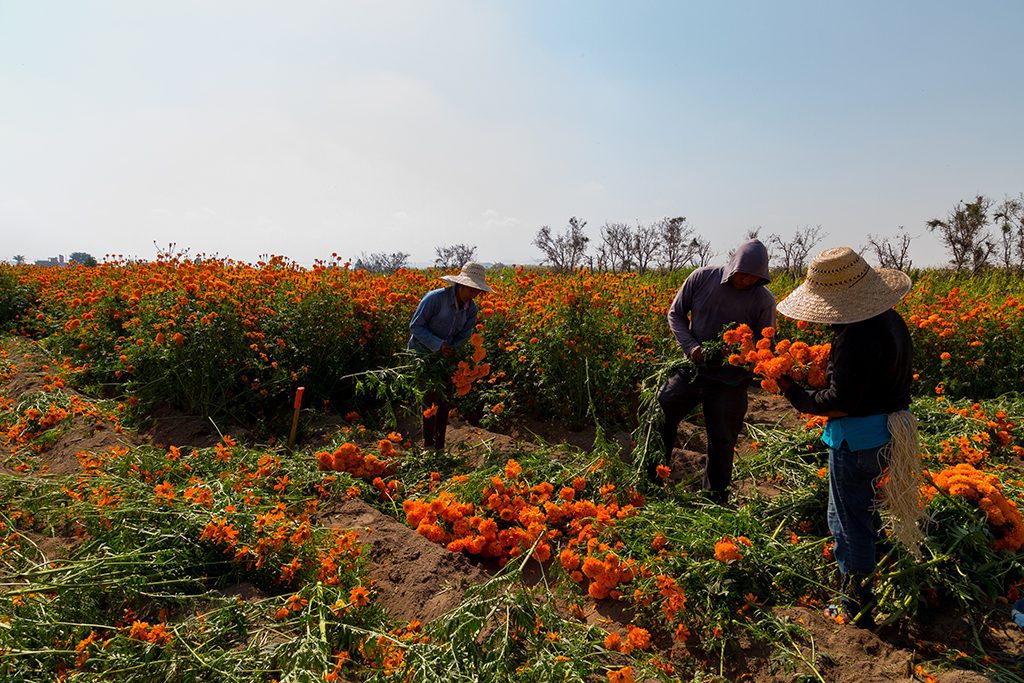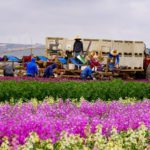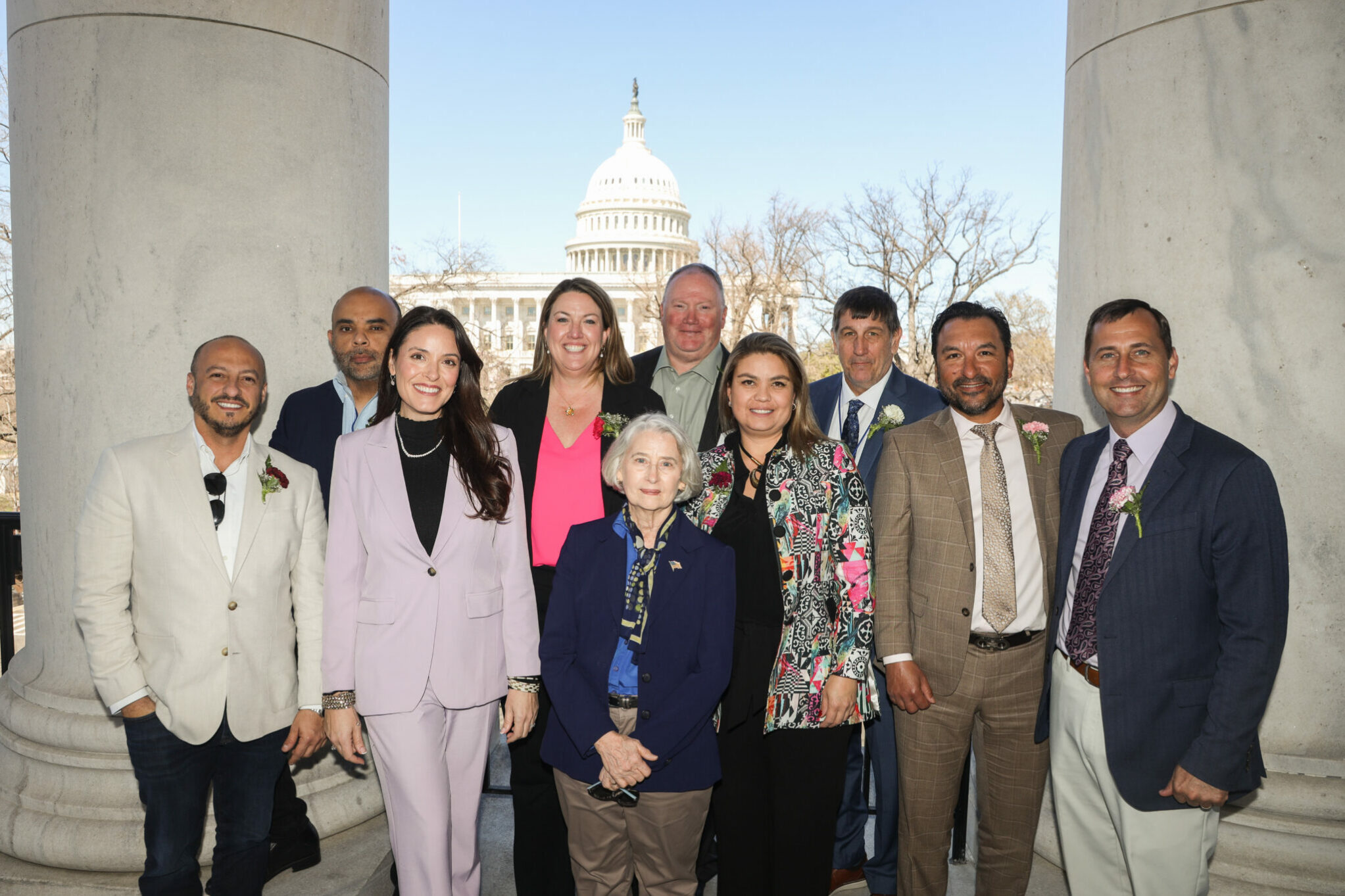
Agricultural labor is a challenge for the floral industry — and the country. During SAF’s Congressional Action Days, members will talk with legislators and their staffs about the need to reform immigration and labor laws.
Editor’s note: Advocating for the floral industry’s needs on Capitol Hill is a key priority for the Society of American Florists. What issues are most likely to impact you and your business — and how? What is SAF doing about it? In this ongoing series, SAF senior lobbyist Joe Bischoff breaks down one issue at a time and outlines SAF’s advocacy work on it.
This week, Bischoff answered questions about the importance of addressing the agricultural labor crisis and what it means to all segments of the floral industry and the economy. Learn about SAF’s legislative priorities and register for Congressional Action Days March 20-21 to take the industry’s issues to Capitol Hill.
SAF: For those who may not understand, how does the labor challenge specifically impact growers in our industry?
Joe Bischoff: It’s costly for our growers to operate under the current system. Employers using H-2A go through expensive, complicated hiring processes to secure the necessary labor in addition to ensuring compliance with strict housing and transportation standards. The program simply doesn’t provide reliable access to enough employees to meet the demand. This impacts our industry’s access to the products they need.
On top of this, employers must pay wages based on the Adverse Effect Wage Rate (AEWR), which changes annually — and often with surprisingly sharp increases. This is true again this year with a 7.5 percent increase nationally from 2022 wage rates. Florida and Georgia saw AEWR increases of 15.5 percent and 14 percent, respectively.
SAF: Our industry has been working on this issue for more than three decades, during CAD and year-round in our lobbying efforts. Is there reason to still be hopeful something will happen?
Joe Bischoff: This issue has had peaks and troughs in the last 30 years — times when there is opportunity for movement, and times when things are at a standstill. We’re in a time of movement. Late last year Congress appeared close to taking real and impactful action to reform agricultural labor policy by considering the Affordable and Secure Food Act during omnibus deliberations. This followed the House’s passage of the Farm Workforce Modernization Act in 2021. We don’t want to lose momentum. We want to keep the issue on the radar screen. That’s why as an industry we need to keep banging the drum to keep the issue front and center.
SAF: How will we get Congress to finally make this issue a priority?
Joe Bischoff: We will emphasize that this issue is more relevant now than ever: We have unprecedented levels of people coming to the United States looking for asylum. The pressure at the southern border is higher than it’s ever been. Our immigration challenge affects business, national security, health care — practically every part of the U.S. economy. If we had appropriate laws and a way to facilitate people coming into this country, we would have both an ample workforce and a way to legally document it. If the process was in place, employers could employ people efficiently.
SAF: Why should members of Congress who don’t represent border states or states with a large agricultural presence care about this issue?
Joe Bischoff: The labor challenge doesn’t apply to just agriculture. It applies to small business more broadly. If some businesses follow the rules about hiring workers and some don’t, it creates an unfair playing field. There isn’t one aspect of the current system — whether it’s border security, access to labor, or fairness in competition for small business — that is working. The status quo is not defensible. The demand for employees is so high that we’re not situated to handle the level of people who want to come here, and the amount of employees that we need. Put simply, the system is overburdened. That’s why this issue matters to every congressional office.
SAF: Why is solving the agricultural labor crisis so important to solving the country’s labor challenges as a whole?
Joe Bischoff: The broader issue of immigration and labor policy will not be solved until there is a solution to agriculture labor, which will serve as a foundation for labor challenges in other sectors. The good news is that agriculture labor is also the area where Democrats and Republicans are closest to getting something done as a part of immigration and labor policy.
SAF: What can members do to get involved a make a difference?
Joe Bischoff: SAF accomplishes its legislative priorities when members get involved to help push issues forward. The best way to make your voice heard to members of Congress is to attend Congressional Action Days, March 20-21 in Washington. The event is your opportunity to speak to key lawmakers about our industry’s priorities. These meetings are a way to connect with legislators and their staff and build personal rapport. Register now to ensure that SAF can schedule as many congressional office appointments as possible — and to take advantage of the early bird registration fee which ends March 3.
Katie Butler is the senior vice president of the Society of American Florists.






